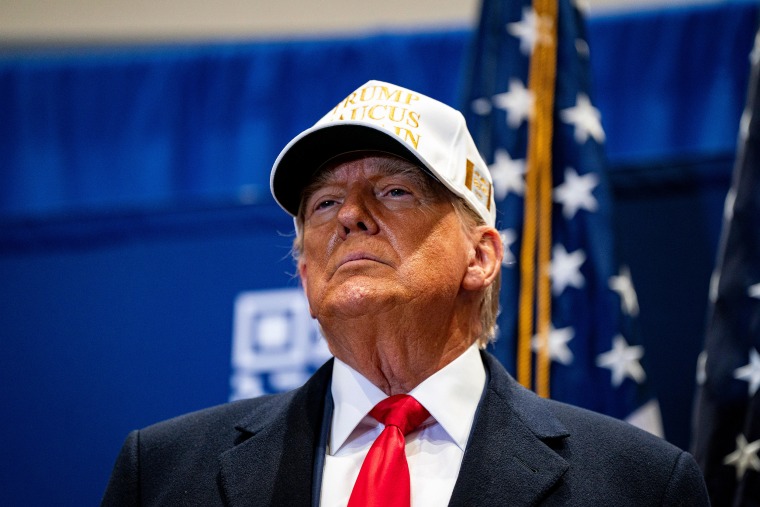On Friday afternoon, ahead of the final weekend before the Iowa caucuses, Donald Trump used his social media platform to promote a new campaign ad. As a visual matter, the 30-second spot is unremarkable: Viewers simply see the former president walking down a hallway, in black and white, and in slow motion. There’s not much to it.
But what matters about the campaign commercial is the audio that plays while the Republican is seen walking:
“This is the final battle. With you at my side, we will demolish the Deep State. We will expel the war mongers from our government. We will drive out the globalists; we will cast out the communists, Marxists, and fascists. We will throw off the sick political class that hates our country. We will route the fake news media, and we will liberate America from these villains once and for all.”
Most of the rhetoric was boilerplate, though it was his first five words that stood out as notable: “This is the final battle.”
Those who don’t keep up on Trump’s day-to-day rhetoric might not realize the frequency with which this phrase comes up. The week before promoting this ad, for example, the likely GOP nominee published a related missive that began, “2024 is our Final Battle.” (The former president has long adopted an idiosyncratic approach to English grammar, which includes an apparent belief that he should capitalize words he considers important.)
Shortly before Thanksgiving, the Republican pushed the same line, publishing an item that read, “2024 IS OUR FINAL BATTLE.” A few days earlier, his online readers saw the same phrase, without the capitalization: “2024 is our final battle.” At his first campaign rally of 2023 — held in Waco, Texas — supporters heard the identical words.
At first blush, this might not seem especially remarkable. Trump has already served one term in the White House, and he expects to win a second in the fall. As such, from his perspective, it stands to reason that the 2024 race will be his “final” fight for elected office.
But there’s a bit more to it than that. The Washington Post’s Philip Bump had a terrific piece along these lines a couple of months ago:
If your immediate point of reference for that [“final battle”] phrase wasn’t to the Book of Revelation’s depiction of the apocalypse, you are probably not a Trump supporter. (A 2012 poll from PRRI found that the religious group most likely to say that the end times as predicted in Revelation would occur during their lives was evangelicals.)
Noting the invocation at a Trump rally in Iowa in November, Bump highlighted the rhetoric from a conservative Baptist preacher, who insisted that “lies, corruption, and propaganda are driving civilization to ruins.”
The final battle, Trump added soon after, “would once again set all of this right. By implication of its title, this is their last chance to fix what’s broken, to intervene in lieu of anticipation of a divine hand.”
The New York Times published a report last week on the former president’s evangelical supporters in Iowa, and noted a young evangelist also delivered a prayer at a Trump rally.
“This election is part of a spiritual battle,” the preacher told attendees. “When Donald Trump becomes the 47th president of the United States, there will be retribution against all those who have promoted evil in this country.”
It’s a safe bet that when the Republican frontrunner makes references to “the final battle,” that young evangelist hears something different than secular audiences hear.

